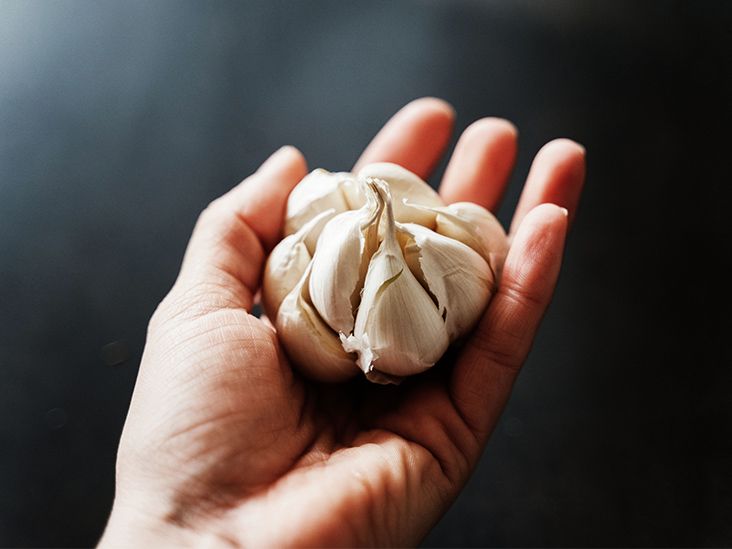7 best natural antibiotics: Uses, evidence, and effectiveness - Medical News Today

Certain natural substances have antibacterial properties, including garlic, ginger, and honey. While these may be of benefit as part of a balanced diet, they are not a replacement for prescription medication.
Prescription antibiotics, such as penicillin, have helped people to recover from otherwise fatal diseases and conditions since the 1940s. However, many people may consider alternative treatments, such as natural antibiotics.
Some people may experience side effects after taking antibiotics, such as feeling sick or diarrhea. Other people may also experience an allergic reaction to certain antibiotics. As such, while natural options cannot replace prescription medication, they may still provide some benefit.
In this article, we look at the evidence behind seven of the best natural antibiotics. We also discuss which to avoid, and when to see a doctor.
With an ongoing increase in drug-resistant bacteria, research is investigating natural compounds as a potential source and inspiration for new antimicrobial agents. While more research is necessary, some natural options show promising results under medical review, and warrant further study.
Some possible natural antibiotic agents include:
1. Garlic
Cultures across the world have long recognized garlic for its preventive and curative powers.
According to the American Society for Microbiology, garlic possesses many active antimicrobial components. These include compounds such as allicin, ajoenes, and allyl sulfides, which exhibit a range of antibacterial properties. A
2. Honey
Since ancient times, people have used honey due to its wound-healing activity and antimicrobial properties. Evidence also suggests that honey could offer support against drug-resistant bacteria.
A 2021 review highlights that honey is a powerful antimicrobial agent with a wide range of effects. Honey could help provide an alternative antibacterial agent with promising therapeutic potential. Another 2021 review notes that the antimicrobial components of honey include hydrogen peroxide and methylglyoxal
3. Ginger
The scientific community also recognizes ginger as a natural antibiotic. In addition to its antimicrobial activity, a 2019 review also highlights that ginger possesses antioxidant, anti-inflammatory, and anticoagulant properties.
A 2022 study suggests that ginger could effectively inhibit a variety of bacteria, including Streptococcus mutans, Enterococcus faecalis, Staphylococcus species, and Lactobacillus species.
4. Echinacea
Native American and other traditional healers have used echinacea for hundreds of years to treat infections and wounds. A 2022 article notes that echinacea has an antibacterial effect on respiratory bacteria.
Studies also suggest that echinacea may possess antiviral properties and could help treat respiratory tract infections in both
5. Goldenseal
Goldenseal is usually consumed in tea or capsules. Proponents may use goldenseal to help treat respiratory and digestive problems. While more research is necessary, some evidence supports that goldenseal may possess antimicrobial, anticancer, and immune-stimulant properties.
However, at present, scientific evidence
6. Clove
Cloves are dried flower buds that come from the clove tree, which people may use as a spice in food or drinks.
A 2023 study notes that clove essential oil may possess a strong inhibitory effect against Staphylococcus aureus. Similarly, a 2020 article notes that clove extract may have potential as a new antibacterial agent.
7. Oregano
Some believe that oregano boosts the immune system and acts as an antioxidant. It may also possess antibiotic properties, particularly when it is made it into an oil.
A 2022 review notes that the antimicrobial effect of oregano oil may be due to a compound known as carvacrol. For example, a
Just because something is natural, it does not necessarily mean it is safe.
For example, the amounts and concentrations of active ingredients vary among brands of supplements. Therefore, it is important to read labels carefully. A person should also inform their healthcare provider if they plan to take these supplements.
For example, while cooked garlic is usually safe to consume, research suggests that taking concentrated garlic may
It is also advisable to avoid certain natural products, such as colloidal silver. This substance consists of microscopic pieces of silver suspended in water.
Proponents suggest it can treat a variety of diseases. However, according to the National Center for Complementary and Integrative Health (NCCIH), it can be dangerous, and
Due to the current increase in drug-resistant diseases, most doctors do not prescribe antibiotics
Antibiotics are most often prescribed to:
- prevent the spread of infectious diseases
- prevent a condition from becoming more serious or fatal
- speed recovery from illness or injury
- prevent development of complications
If a person is prescribed antibiotics, they should take the entire dosage as a doctor directs. This is especially encouraged in people with a higher risk of bacterial infection, or who face greater risks if they become ill, such as people who are:
When an individual is allergic to prescription antibiotics or suffers side effects, they may want to discuss other options with a doctor.
According to the Centers for Disease Control and Prevention (CDC), each year more than
These bacteria constitute a growing threat, and the key to developing new and effective medications may lie in natural antibiotics.
While natural antibiotics may present opportunities, they also carry risks. Still, research into these treatments is growing, and an increasing number of substances are undergoing testing. As such, natural antibiotics that people have traditionally used for centuries may contribute to the lifesaving drugs of tomorrow.
Comments
Post a Comment